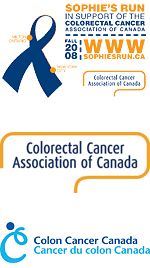Prevention and Screening
Each year thousands of Canadians die because they are not regularly screened for this curable and preventable disease.
Traditional stool and colonoscopy screening tests for colorectal cancer are often perceived to be inconvenient and uncomfortable. As a result, many people avoid or delay being tested until symptoms appear and typically the cancer is in its late stages, when cure rates have dropped to less than 10%.
Routine screening to detect colorectal cancers before symptoms appear can save lives. But this is not happening. It is estimated that with existing screening methods, only around 15%-20% of Canadians are being appropriately screened for colorectal cancer today.
Who should be screened?
According to most North American clinical guidelines and health authorities, everyone over age 50 should be regularly screened for colorectal cancer.
Additional Risk Factors:
Earlier, more frequent screening should be considered for individuals with one or more additional risk factors:
- high red/processed meat diet;
- ovarian, endometrial or breast cancer history;
- little/no physical activity;
- ethnic background –Ashkenazi Jewish descent;
- obesity;
- smoking/high alcohol consumption.
High-Risk Factors:
Earlier screening with regular colonoscopies is recommended for individuals with one or more high-risk factors:
- personal history of colorectal polyps;
- inflammatory bowel disease (ulcerative colitis, Crohn's disease);
- family history of colorectal cancer (first degree relative with colorectal cancer);
- familial adenomatous polyposis or hereditary nonpolyposis colorectal cancer.
